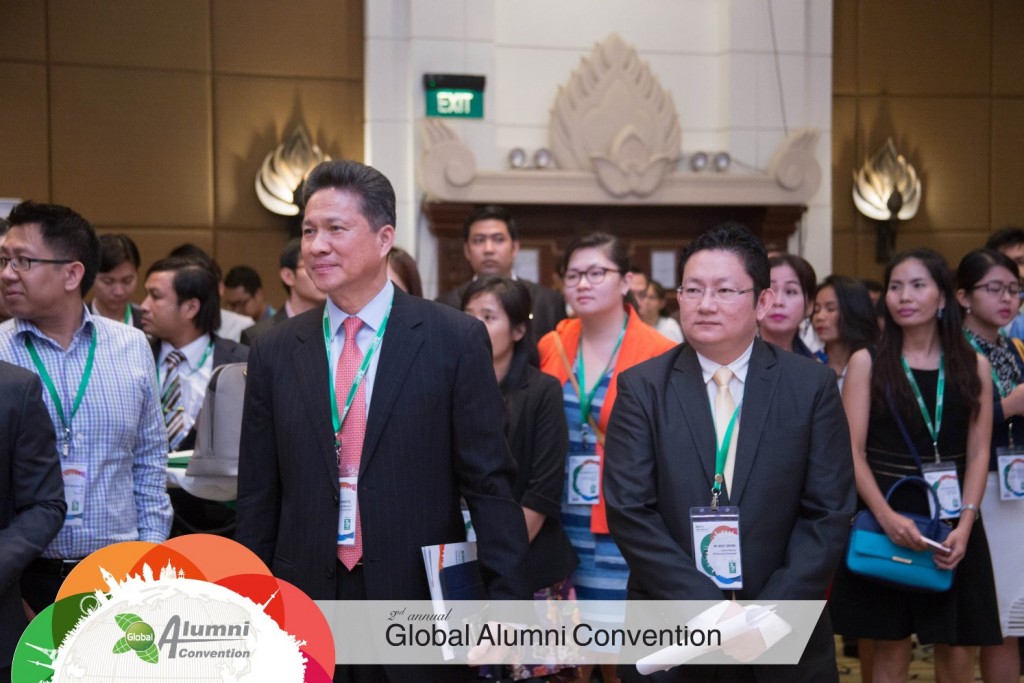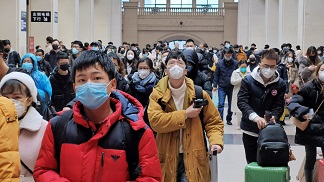The urban planning and construction panel discussion held as part of the second Global Alumni convention (GAC) at the Intercontinental hotel on Saturday 30th January 2016 presented the figures of 151 borey projects currently underway, 186 real estate companies in operation in Cambodia and that there will be approximately 20,000 condos in Phnom Penh by 2018. This fell into a wider discussion about the proposed Phnom Penh City Master Plan 2035, and how the city can sustainably grow into the future...

So what implications does this have for the sector and the investor?
There were several questions raised at this year’s GAC event around construction quality control and the legality of the building and construction industry if the Royal Government seeks to achieve its vision of a Phnom Penh City Master Plan 2035.
“How do you know that this building is built to standard?” asks H.E. Dr. Sok Siphana, legal advisor to the Royal Government of Cambodia, “There’s a lot of issues around quality of construction, especially if you are building 20-30 stories. How do you know who is qualified?”
The government sought the assistance of the experienced legal drafter, Dr. Sok Siphana, to develop a comprehensive building and construction law to regulate the industry, and this experience has no-doubt influenced somewhat the Phnom penh city master plan.
“Good construction is a business within itself and it’s good for the economy,” says Dr. Sok Siphana, “Quality class A building attracts reliable investors. How do you attract sub-regional companies to set up in Cambodia in low quality shoddy buildings? We have to regulate the industry and the practitioners within it. We have to introduce the concept of certification.”
Dr. Sok Siphana says that public safety is paramount. “For example, in general, the current laws governing contracts for boreys do not protect the consumer. As the State, we have to think about the public... How to ensure that there’s no fraud and that the public are safe, and that buildings won’t collapse while you’re still paying the mortgage.”
So how will people within the sector build their knowledge and understanding of the law and how will it be enforced? How will they be educated on real estate technical skills such as quality building codes, practices and property evaluation?

That being said, the Phnom Penh City Master Plan 2035 seemingly must come as part of a wider regulatory reform framework. And, so it seems, tertiary and vocational training development throughout Cambodia.
Kim Heang, CEO of Khmer Real Estate and current President of the Cambodian Valuers and Estate Agents Association (CVEA), says that the peak industry body plans to start a training institute after Khmer New Year with the view of providing essential technical vocational training for the real estate industry.
“We plan to create a specialised institute - as the bulk of the dirty work is not done by the architect or engineer; it’s done by tradesmen. In Cambodian culture we value high position professions but forget about these trades such as plumbers and electricians. These people have a lot of value. This is where the role for vocational training lies. Not everyone can decide to be a crane operator and just go and do it”, he says.
Kim notes that the CVEA has the full support of the Ministry of Banking and Finance to undertake their training institute project later this year, “We have the backing of the ministry for a real estate training school. Over the next year we plan to provide three months vocational training in agency work and property valuation.”
Simon Griffiths, Associate Director of CBRE, believes along with technical training, realtors need to take the lead in upholding high standards.
“Standards and quality all exist in Cambodia. We need real estate firms to take the lead to act responsibly while those valuation standards and new laws are being put in place. The industry as a whole needs to recognize the importance of valuation and not bend the rules when it suits because the impact it can have is very severe. ANZ and the other banks will know the risk of improper valuation.”
“Cambodia has so much potential,” says Kim, “We have to compete with our neighbours now we are part of the Asean Economic Community (AEC). We hope our trainees will go out and even work abroad, then bring back this knowledge to Cambodia to advance the real estate industry as a whole”.






Comments